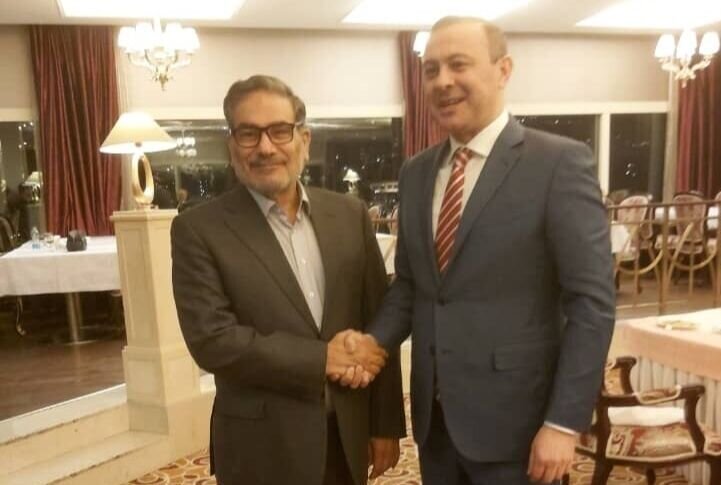Caucasus tensions are to no country’s advantage, Iran’s security chief says

TEHRAN - Ali Shamkhani, the secretary of Iran’s Supreme National Security Council (SNSC), said late on Sunday that tension and violence in the Caucasus region are detrimental to all of the countries that are involved, reiterating Tehran’s opposition to any change to the region’s geography.
“Any geographical change in the South Caucasus region is a tension-building measure, which will play into the hands of the enemies of regional security and stability,” Shamkhani noted in a meeting with Secretary of Armenia’s Security Council Armen Grigoryan.
The senior security official of Iran underlined that any “hard approach” to resolving regional issues must be replaced with dialogue and collaboration.
His comments were made against the backdrop of long-standing hostilities between Armenia and Azerbaijan over the contested Nagorno-Karabakh territory.
Shamkhani noted the Caucasus region is going through a delicate time, expressing optimism that Azerbaijan and Armenia will be able to resolve the current difficulties with patience and wisdom.
The top security official also said the principal goal of the sitting Iranian government is engagement and collaboration and engagement with neighbors.
Armenia’s senior security official also said Iran played an “important role” in fostering relations between South Caucasus nations and preserving regional stability.
Grigoryan praised Iran’s “very effective” role in achieving regional peace and stability, highlighting that cooperation and communication among nations are the only means of addressing the current issues in the region and averting additional unrest and clashes.
De-dollarization will dwindle Western economic domination: top security chief
Shamkhani also held talk on Sunday with Igor Levitin, the secretary of the Russian State Council and a key adviser to Russian President Vladimir Putin.
At the meeting, Iran’s top security official said the moves around the world to decrease the role of dollar in their international trade will break the hegemony of dollar.
The effort to decrease the use of the dollar in regional and international transactions, which has the support of various nations, will lessen Western domination over the global economy, he noted.
Brazil and China as two economic powerhouses struck a deal in March to ditch the U.S. dollar in favor of their own currencies in trade transactions.
Shamkhani also said the agreements reached between Iran and Russia in the area of financial and banking exchanges intended to finance joint projects serve as an “effective” model for countering the illegal sanctions imposed by the West against the two nations.
The SNSC secretary applauded efforts to promote bilateral trade and economic cooperation and emphasized the urgency of moving quickly to complete cooperative initiatives.
He said that strengthening transit cooperation between the two nations and completing the North-South Corridor are significant components of the joint projects.
Shamkhani added that the two nations’ unwavering efforts would eliminate any barriers to the swift realization of this strategic project, which would be crucial in altering the geometry of the movement of goods in the region.
For his part, Levitin stated that Russia is prepared to participate in a number of Iranian economic sectors, including steel, oil, and petrochemical industries, underlining the need to swiftly undertake collaborative projects, notably in the transit sector.
The Russian official added that in addition to the significant actions taken to advance bilateral economic cooperation, appropriate grounds have been set up to conclude a multilateral economic agreement and motivate other nations in the region to take part in successful economic projects.
In the midst of negotiations between the two nations to acquire the funds required to complete the vital North-South transportation link, Levitin traveled to a railway project in northern Iran during his most recent visit to Iran in January.
Leave a Comment